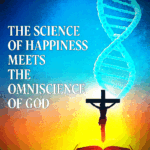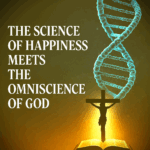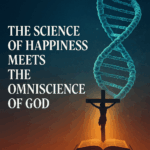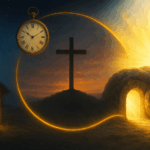“A Garden Curse Undone” – Genesis 3:8-15
Introduction – the Church Year
Let me begin by telling you, maybe reminding some of you, about what we call our Church Year. It’s different from our calendar year. We start the Church Year about a month before Christmas with the season of Advent that prepares us for the celebration of Jesus’ birth. For a few weeks after Christmas we hear about the beginning of Jesus’ ministry, starting with His Baptism. That season is called Epiphany, and it focuses on Jesus’ nature as God being revealed to people especially through His miracles and healings. The Transfiguration of Jesus – where His appearance was as bright as the sun – serves as a bridge from the Epiphany season to the season of Lent during which we walk with Jesus through the opposition that He faces from various Jewish religious groups. Lent leads to Holy Week – Jesus’ entry into Jerusalem on Palm Sunday, His arrest and trial on Thursday night, His crucifixion on Good Friday, and His triumphant resurrection on Easter Sunday. A seven-Sunday long season of Easter continues the celebration of Jesus’ rising from the dead. Near the end of those seven weeks, we hear about Jesus ascending to his rightful place in heaven as God. Then, ten days later, we celebrate Pentecost and the promised sending of the Holy Spirit as the comforter and guide of those who follow Jesus. And last Sunday, we turned our attention to the teaching that God is one God in three persons – God the Father, God the Son, and God the Holy Spirit… the Trinity. All of that – about 6 months in total – is the Festival half of the Church Year. Lots of festivals, lots about the life and ministry, death and resurrection of Jesus.
Today, we move into the second half of the Church Year – called the Time of the Church, and named as “Sundays after Pentecost.” This part of the Church Year takes us through the next 6 months until we arrive at Advent again. The only major festivals in the next 6 months are Thanksgiving and Reformation Sunday – both in October. The Gospel readings – and we are in the schedule where the Gospel readings come predominantly from Mark’s account of Jesus’ life – the Gospel readings land more on Jesus’ teachings, with some healings and miracles, too, so it’s the season in which we can truly grow in our faith. The month of June, however, has some really good and memorable Old Testament lessons, so that’s where we’re going to be, and today will find us with Adam and Eve in the Garden of Eden.
1. Genesis 3 – the beginning of the story
A couple of times recently our readings from the Book of Acts seem to have started in the middle of a story. And that’s what happens in today’s reading, too. I don’t know why “they” chose to start at verse 8 – we really should have started in verse 1. So, let’s back track to the beginning of the story and answer the questions of – Where? Who? What happened?
a. Where?
We’re in the Garden of Eden, the beautiful place of God’s creation, with the various trees, the animals that had been appropriately named, and the man – Adam – and the woman – Eve. It was Paradise. Everything was good… very good actually, with just one tree to avoid, at the peril of death, God said.
b. Who?
There are four characters in these 8 verses. It’s hard to truly give the man a name because the Hebrew words ‘Adam,’ ‘man,’ and ‘ground’ (from which he was made) are all closely related etymologically. Let’s just say there was a man there. There was also a woman present, and she was just identified as Eve later in Genesis 3. There was also a serpent or snake, and that character represents and speaks for the devil, the one who would become the history-long adversary of the human race. In fact, in our Gospel reading from Mark 3, the religious leaders name him as Beelzebub and the prince of demons, while Jesus calls him Satan, the accuser. In John 8, Jesus would refer to him as the father of lies, and we see in this Genesis 3 story that his lies begin. Satan’s association with snakes is perhaps the reason why many people still today are repulsed by them – by their meandering movements, their silent gliding motion, their sinister appearance, their vibrant and evil tongues, and the peculiar rearing of the head, not to mention the poisonous venom of various kinds of snakes. The fourth character in Genesis 3 is God, the Creator, the Father, the Lord.
c. What happened?
This is where we really need to go back to the beginning of the chapter… well, even to Genesis chapter 2. In Genesis 2, God had created the man from the ground and had breathed into him the breath of life. At the end of the chapter, God created the woman from the rib of the man. In between, God gave the man as food the fruit of all the trees in the Garden, except for one tree – the tree of the knowledge of good and evil. Disobeying that restriction would result in death. Now, as we turn the page to chapter 3, the serpent – Satan – appears and reveals his character by planting suspicion in the mind of the woman. “Did God really say you shouldn’t eat of any tree in the garden?” Next, in response to the woman’s statement that the tree of the knowledge of good and evil was forbidden, Satan plants deception and lies: “You’re not going to die!! God doesn’t want you to eat from that tree because He knows that if you do you’ll become like Him. Wouldn’t that be a good thing… to be like God? Besides, it’s the best tasting fruit in the entire garden!!” All lies, all twisting of God’s words and intentions, all deception of the woman and the man, all uncovering the reality that Satan is the adversary and accuser of human beings.
So, the end result was… the woman ate the fruit that was forbidden by God, and she gave some to the man, and he ate it, too. And there we have the first sin, the first disobedience, the first rebellion against God. Oh, the word sin is not there in the Hebrew words of Genesis 3, but the concept is. Some people deplore the church’s obsession with sin. Some may deny the teaching of original sin – that we have all inherited sin from our parents all the way back to our first parents, the man and woman in the Garden of Eden. Some minimize or excuse one’s actual sins – “that wasn’t so bad,” or “I didn’t mean it.” But sin is a prominent topic in the Bible so we can’t ignore its reality or its devastating impact on our human lives. The Hebrew root word for sin is found 603 times in the Old Testament. The Greek root word for sin is found 268 times in the New Testament. There are other synonyms of those root words, too – words that are translated by ‘transgression,’ ‘iniquity,’ ‘wickedness,’ or some other similar word. We ignore the Biblical concept of sin at our own eternal danger.
2. The story
a. Where are you?
Finally, after all that lead up, we pick up the story in verse 8. It’s like a little game of hide and seek. God is walking in the garden. The guilty woman and man were hiding behind some trees, dressed in their fig leaf loincloths. Then we hear God’s very first question in the Bible: “Where are you?” which really is to say “What have you done?”
You remember times like that. If you are a parent or grandparent, I want you to stretch your mind past, way past times that you may have said that to your kids or grandkids. Go way back to a time when a parent or a teacher at school asked YOU that question: “Where are you? Why are you hiding? What have you done?”
For me, one of those times was in Grade 3. I noticed a couple of the boys over at the pencil sharpener. They were doing something, something that looked like fun. So, I grabbed my pencil and wandered over there to explore. What they were doing was rubbing their fingers on the lead of the pencil, and then putting it on their cheeks and noses. Because I joined Grade 3 part way through the year, I guess I wanted to become accepted, part of the boys… so, there I was rubbing lead on my face… when Miss Bowerman walked over. Any time a bunch of boys are huddling together and whispering and laughing… well, you know there’s trouble brewing. “Boys, what are you doing?” And in that moment – fear, shame and guilt flooded my little heart, because my naked lead-covered face was evident to Miss Bowerman. We had been caught. I had been caught.
b. Ashamed of the truth
That’s how the guilty man and woman hiding in the Garden felt. “I was afraid. I was naked. I hid.” Then, in rapid succession, came God-questions numbers 2 and 3 – “Who told you that you were naked? Have you eaten of the forbidden tree?”
The man’s answer to those questions was evasive and inadequate. Isn’t that what we do when we are caught in an uncomfortable situation? We don’t like to admit the truth, and we avoid it at all costs – changing the subject, denying, even lying, even blaming someone else.
A pastor tells the story of a man who came to his office to talk about something serious. They engaged in some small talk, and then the man stood and walked to the door. The pastor thought he was going to leave without bringing up the subject for which he came. Instead, he put his hand on the light switch, turned to the pastor and asked, “Is is OK if I turn out the light? I’m too ashamed of what I have to say.” There in the darkness of the church office with the only light coming from the dim glow of the outside security lamps, he poured out his heart and his confession.
When we have done something wrong, we prefer to crouch in the darkness, or with our backs turned to someone, or behind a tree. When we have done something wrong, we prefer to not assume personal responsibility, but rather to blame someone else. And that’s what happened in Genesis 3. We read that the man blamed the woman (and we might read between the lines and see that he even blamed God to some degree). We read that the woman blamed the serpent. The serpent had no one to blame.
3. The end of the story – curses 2 and 3
Then God spoke. God spoke three Garden of Eden curses. Now remember I told you that we really started in the middle of the story, and we needed to hear about the beginning. Well, it’s worse than that. We ended in the middle of the story, and we need to hear the end. There are three curses that come from the mouth of God, but we only heard one of them – oh, I think it’s the most important one, but we only heard one. So, let me tell you about the end of the story.
When the man and woman sinned and disobeyed God everything in the “very good” creation broke. The first and most heart-breaking thing that broke was their relationship with God. They had brought upon themselves the curse of the only command of God in the Garden, and they would suffer the consequence of physical and bodily death because of it, and they would be expelled from that Garden Paradise, never to return. Another thing that broke was the relationship of one human being to another. Evidence of that broken relationship was the fact that among the first human words spoken in the Bible was the blame that the man heaped upon the woman. The marriage partnership was strained and every one of you who is married can attest to the fact that there is no such thing as a perfect marriage. The woman was cursed in that she would experience greatly increased pain during childbirth, and that her husband would rule over her. The curse on the man was a sign of another broken relationship – with the environment, the world in which they lived. The ground was cursed – it would produce thorns and thistles, and the man would have to sweat and work hard to eat from the crops that he planted. So, that, and their banishment from the Garden was the end of the story.
4. The most significant curse (and good news!)
But we still need to talk about the most significant curse, the one that was part of our Bible reading. There was the curse on the serpent – that it must crawl on its belly and eat dust. But let’s leave that part, and focus on the curse issued to Satan who spoke through the serpent. First, comes the reality that there would be unending tension and struggle between humanity (the woman) and Satan (the accuser) – with Satan constantly tempting, lying, deceiving, and human beings never seeming to be able to get out from under those lies in order to be faithful and obedient to God. But the second part of the curse is even more significant, as God promises that sometime in the future Satan’s head will be crushed by the offspring of a woman. Remember that that was a curse on Satan, while at the same time it was a promise of pardon for those two human rebels. It was good news that the Garden curse of death and separation from God would be undone, reversed, overturned, annulled by one particular human being. That good news was not applied only to them, but to the entire human race – even to you!
The one human being who would undo and reverse the Garden of Eden curse was Jesus. The context of our Gospel reading from Mark 3 was that Jesus had been casting demons out of people who were being afflicted by the presence of Satan in their lives. It was the beginning of what He would do fully and completely later. Now, he was shooing Satan’s minions away from people. Later He would finally crush Satan’s head and His power over people.
It was in one Garden that mutiny began and that the curses were invoked. It was in another Garden that the curses were undone. The night before He was 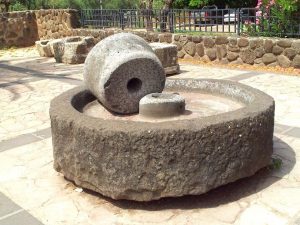 crucified, Jesus was praying in the Garden of Gethsemane. Have a look at this photo – Interestingly, Gethsemane means ‘oil press’ and it refers to a wheel of rock that spins around on another rock when pulled or pushed by a donkey, and that rock crushes olives, making them ‘suffer’ and breaking their skins to produce the oil. It was there – in the oil press Gethsemane Garden – that Jesus suffered as He prayed for God’s will to be done. It was there, and in the 18 hours or so that followed, and in His death on the cross that Satan’s head was crushed as if he were merely an olive in an olive press. Jesus graciously defeated Satan for all of us even though He, Himself, at the same time experienced the agony of human death.
crucified, Jesus was praying in the Garden of Gethsemane. Have a look at this photo – Interestingly, Gethsemane means ‘oil press’ and it refers to a wheel of rock that spins around on another rock when pulled or pushed by a donkey, and that rock crushes olives, making them ‘suffer’ and breaking their skins to produce the oil. It was there – in the oil press Gethsemane Garden – that Jesus suffered as He prayed for God’s will to be done. It was there, and in the 18 hours or so that followed, and in His death on the cross that Satan’s head was crushed as if he were merely an olive in an olive press. Jesus graciously defeated Satan for all of us even though He, Himself, at the same time experienced the agony of human death.
St. Paul wrote about this in Galatians 3. First of all, he says that Christ redeemed us from the curse of the law, the curse of having to obey all of God’s commands, the curse that goes all the way back to Eden, the curse that leads to death and separation from God. Then Paul explains – “cursed is everyone who is hung on a tree.” Jesus was hung on a tree, on the cross, and so he was cursed in your place. He took the curse that belonged to every one of us. Jesus reversed the curse of the Garden of Eden by His suffering in the Garden of Gethsemane and by hanging innocently on the cross of Calvary. His resurrection from the dead demonstrates definitively that He is the One who is stronger than Satan and who can plunder Satan’s household and rescue us and all those held captive by his demonic hosts. That is REALLY good news for those of us who need to always be on the lookout for the deception and the lies that originate from Satan.
We’re going to fall, we’re going to fail, we’re going to sin… all of us will. If you need to turn off the light to confess your sins to God, do it… but do it with the assurance that the curse of those sins has already been undone… forgiven… on the cross… by Jesus.
Accept the curse, the brokenness of the world – the brokenness of our relationship with the environment, the brokenness of our relationships with one another. And oh, the reality of those broken relationships has been made apparent in the last couple of weeks in such a heart-breaking way with the discovery of all the graves at the Kamloops residential school. Yes, we live in a broken, hurting world. God has restored our relationship with Him through the blood of Jesus. He calls us to work hard at maintaining good, healthy, God-pleasing relationships with others in our family, in our church, in our places of work or study, in our community and He calls us to work hard to restore relationships with others that are hurting and broken.
Oh, and just as there is a garden in the very first chapters of the Bible, there is a garden in the very last chapter of the Bible. Revelation 22 pictures a future garden in which the tree of life from Genesis 2 appears again. There, in that garden, the book of Revelation tells us that there will no longer be any curse for those who have staked their lives, their eternity on Jesus, the one who crushed Satan’s head. There will only be the light, the glory, the presence of the Lord God Almighty. Thanks be to God! Amen.




